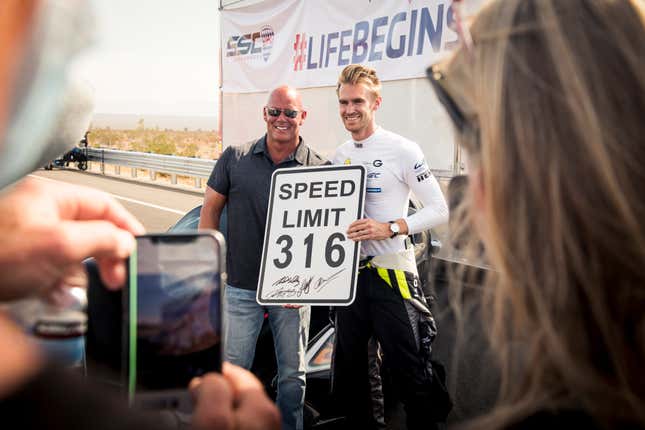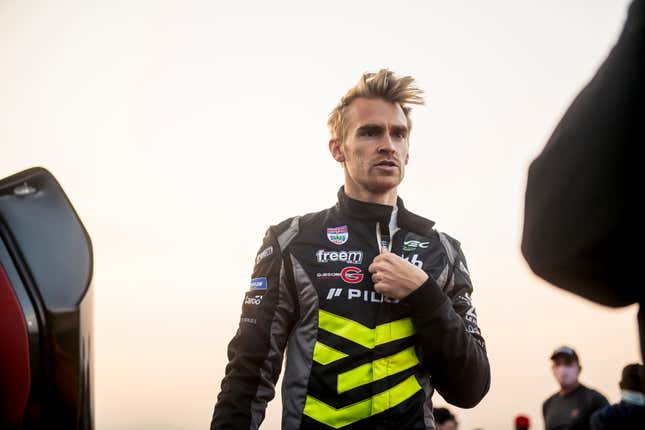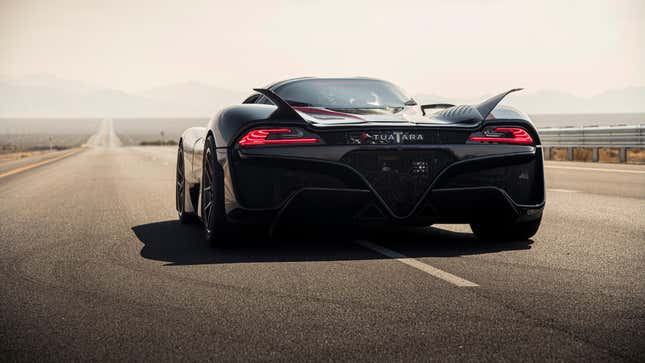
Editor’s Note: On October 10 an SSC Tuatara was clocked at a two-way average of 316.11 miles per hour on a closed section of Nevada State Route 160 outside of Las Vegas. You’ll no doubt read on the internet today that this is a new world record for production cars on a public road, but the speed data, gathered in accordance with Guinness record rules, has yet to be certified.
According to 29 year-old Oliver Webb, the professional racecar driver who just piloted a street-legal SSC North America Tuatara to 331 mph on a Nevada highway, there is no special skill involved in driving that fast.
“If everything goes perfectly, then most people could do it,” Webb says. He also believes that there’s no intrinsic capability that will allow a driver to recover if something catastrophically cattywompus occurs at speed.
“Hiring a driver that can save a car when it goes wrong at 300-plus miles per hour is impossible,” he says. “That’s not going to happen.” (Webb should know. A colleague of his, Zeff Eisenberg, died attempting similar speeds just a couple of weeks ago.)
So how does someone succeed in exceeding a world record speed like this, as Webb just did? “It’s all in the prep,” he says, blithely.
The prep, so to speak, is quite extensive. Start with two decades of racing experience — everything from karting to Formula Three, to Indy Lights, to piloting a Koenigsegg at 250 mph. Add in days of familiarization with the vehicle and the course, including a monomaniacal examination of the details of the road down to the last dust particle. Stir in a soupçon of stunt driving. And require both a preternatural capability to note a car’s dynamics, down to a few grams of difference in the balance weights on a particular wheel, and an intrinsic sense of calm.
“In this job,” Webb says, “you don’t want someone excitable. The team putting this together all wondered if I was unimpressed by the car, or in a bad mood during the run-up. But I was just trying to stay grounded.”
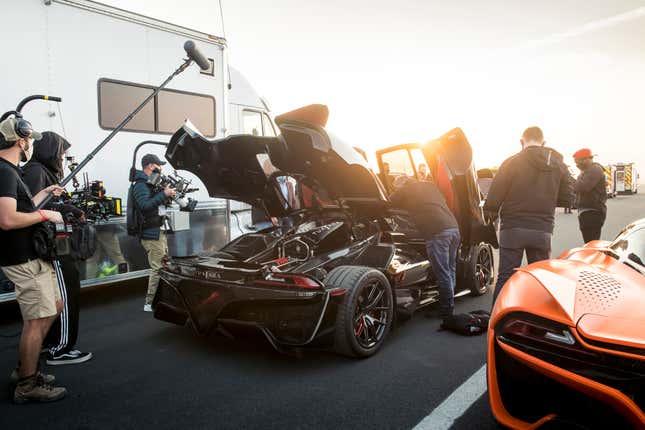
It also helps to, kind of, take it easy.
“I go into a zone before I start a run,” Webb says. “I do deep breathing, meditation, an elimination of my nerves, release of tension in my hands and arms. It’s kind of like going into a trance.”
This state of relaxation works not only for the driver, but for the car. “We had about a five mile stretch of road, though I thought we could probably do it in two. So that gave me the ability to be really progressive for the first few miles. I went at, like, 50 percent throttle, short shifting through the gears, keeping the turbos cool, up to about 200 mph,” he says. “Then I really got on it.”
According to Webb, at top speed, there are a few counterintuitive surprises. Every pebble, road seam and vibration gets amplified by an order of magnitude. Wind noise is louder than engine noise (no small feat given that the Tuatara features a custom-built 5.9-liter flat plane crank V8 that produces 1,750 HP). And the dotted white line in the middle of the road becomes a solid line.
“It’s like going into warp speed in Star Wars,” Webb says.
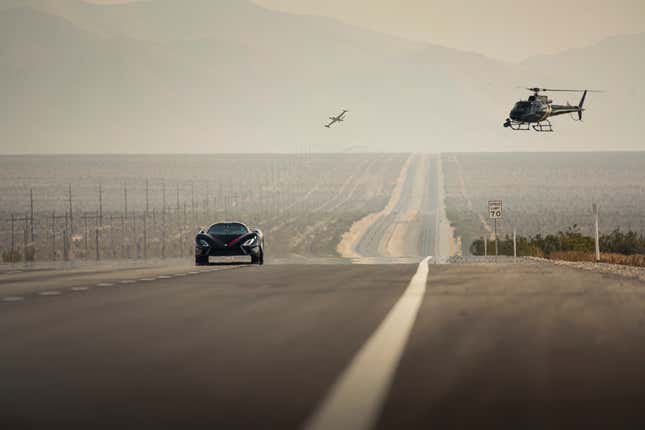
Webb confesses that there was a bonus structure in place for him for achieving the world record speed, but he is suitably closed-lipped on the actual amount. He does say that it does not amount to the $1.9 million cost of a new Tuatara. But it doesn’t seem like he really needs any more cars.
“I drive a boring estate, an Audi S4,” he says. “Though I have a few other more exciting things in the garage, including a 1967 Shelby Mustang Eleanor from Gone In 60 Seconds and a new Aston Martin Vantage.”
That Ingolstadtian wagon has a realistic function. Webb’s wife is pregnant with a due date in January. So, when some mild crosswinds played with the stability of the Tuatara during the height of his runs, Webb found himself thinking, “I would like to be around to be a father to my child. So…it would be unwise to try this ever again.”
But when asked if his wife was equally anxious about this gig of his, he breaks into a mild giggle.
“My wife is a stunt skydiver, so she jumps out of airplanes for a living,” he says. “She’s crazier than I am. Also, she’s not so into cars. She doesn’t know the true gravity of what I do, so that helps. She’s like, ‘You’re going to go quick in a straight line? No problem. See you tomorrow.’ ”
Brett Berk is a New York City-based freelance writer who covers the intersection of cars and culture. His work has appeared in a broad range of publications, including Architectural Digest, Billboard, Car and Driver, GQ, The New York Times, Vogue and Vanity Fair.
